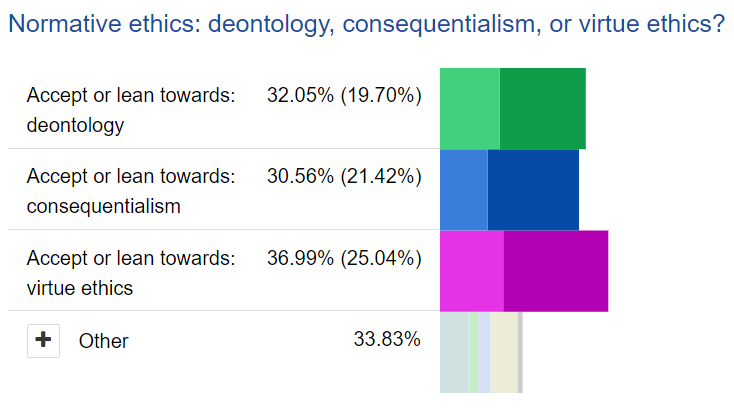
Resolves if PhilPapers or a similarly reputable survey of philosophers reports consistent results that 90% or more (which I will use as consensus) of philosophers surveyed accept or lean towards deontology as the preferred theory of normative ethics.
The market close date will be continuously extended if consensus is not reached.
2020 survey data from the PhilPapers survey for reference:

People are also trading
A lot has been written about how consequentialism supposedly generates unacceptable conclusions under weird and unusual conditions, but I don't think enough attention has been given to how deontological ethics actually, in real life, generates unacceptable consequences under totally normal and standard conditions:
"OHRP wanted them to stop all their current work while they investigated. They convened a panel of top scientists; the panel unanimously said their past research was great and their current research was also great, using terms like "landmark, world-class investigations". They recommended the study be allowed to restart.
OHRP refused. Its director, ethicist Jerry Menikoff, had decided maybe it was unethical to do RCTs on ventilator settings at all. He asked whether they might be able to give every patient the right setting while still doing the study[4]. The study team tried to explain to him that they didn’t know which was the right setting, that was why they had to do the study. He wouldn’t budge.
Finally, after a year, another panel of experts ruled in favor of the investigators and gave them permission to restart the study right away. They did, but the delay was responsible for thousands of deaths, and produced a chain effect on ventilator research that made us less prepared for the surge in ventilator demand around COVID."
From https://astralcodexten.substack.com/p/book-review-from-oversight-to-overkill
@DavidBolin The director was literally an ethicist. Why do you think he was not trying to apply a deontological rule to the situation he was faced with? I think he was.